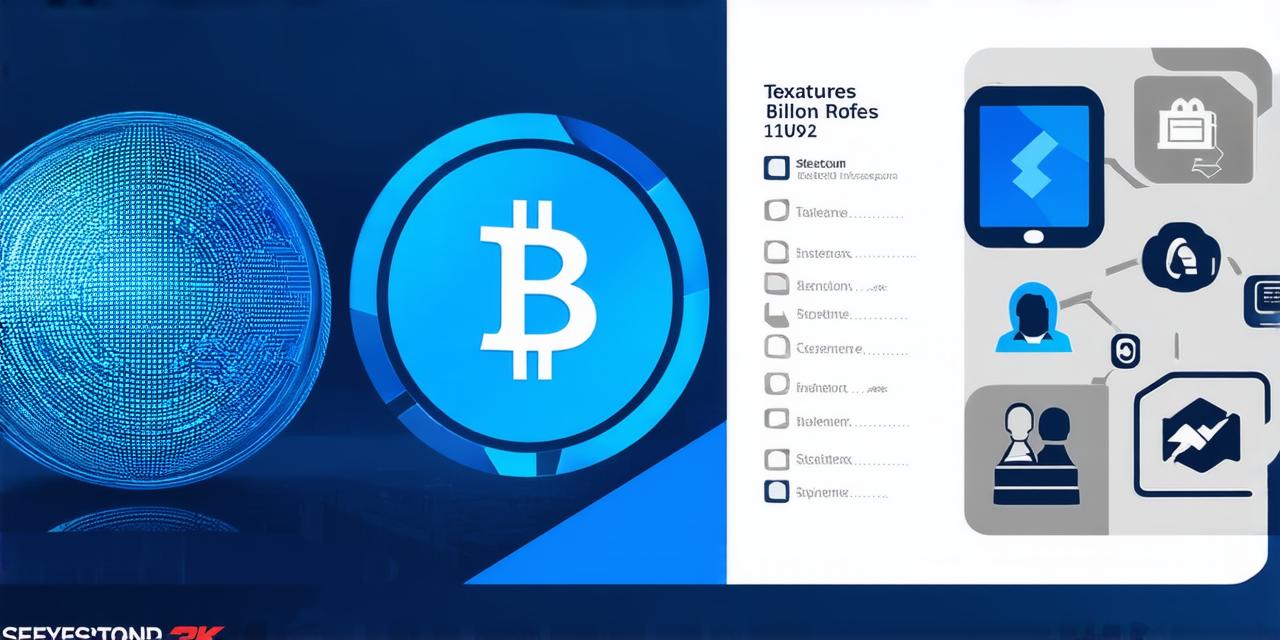Cryptocurrencies have gained significant popularity over the past decade, with many investors and businesses embracing them as an alternative form of currency. However, like traditional assets, cryptocurrencies are subject to taxation in many countries. In this article, we will explore whether purchasing cryptocurrency is considered a taxable event for crypto developers, and examine the implications of taxation on the industry as a whole.
What is a Taxable Event?
A taxable event refers to an action or transaction that triggers a tax liability. In the context of cryptocurrencies, a taxable event might occur when you purchase or sell a cryptocurrency, or use it for goods or services. The tax implications of these events depend on the specific laws and regulations governing cryptocurrencies in your jurisdiction.
Is Purchasing Cryptocurrency Taxable?
The question of whether purchasing cryptocurrency is considered a taxable event has been the subject of much debate within the crypto community. Some argue that purchasing cryptocurrency should not be taxed, as it is merely an exchange of one asset for another, and does not constitute income or a capital gain. Others contend that purchases are indeed taxable events, given that they involve a transfer of value from one party to another.
To determine the tax implications of purchasing cryptocurrency, we must first establish whether it is considered a capital asset or personal property. Capital assets are items that are held for investment purposes and are subject to capital gains tax when sold. Personal property, on the other hand, includes items that are used for personal consumption and are not subject to capital gains tax.
In the case of cryptocurrencies, the classification as a capital asset or personal property can vary depending on the jurisdiction in which they are held. In some countries, cryptocurrencies are considered intangible assets, which may be subject to capital gains tax when sold. In others, they may be treated as currency, and transactions involving cryptocurrency may not be subject to capital gains tax at all.
The Tax Implications of Purchasing Cryptocurrency for Developers

For crypto developers, the tax implications of purchasing cryptocurrency can have significant consequences. Developers who purchase cryptocurrency as part of their job may be required to report these transactions on their tax returns and pay capital gains tax on any profits they make from the sale of the cryptocurrency.
Additionally, if a developer uses cryptocurrency for personal expenses, such as purchasing goods or services, this may also be subject to taxation in some countries. For example, in the United Kingdom, purchases made with cryptocurrency are subject to VAT (value-added tax) if they exceed a certain threshold.
Case Studies: The Tax Implications of Purchasing Cryptocurrency
To better understand the tax implications of purchasing cryptocurrency for developers, let’s look at some real-life examples.
Example 1:
A developer purchases Bitcoin as part of their job and sells it at a profit. In this case, the developer would be subject to capital gains tax on the difference between the purchase price and the selling price. For example, if the developer purchased Bitcoin for $10,000 and sold it for $20,000, they would owe capital gains tax on $10,000.
Example 2:
A developer purchases Ethereum to pay for office supplies and later sells it at a profit. In this case, the purchase of Ethereum would not be subject to taxation if it is used for business purposes, but any profits made from the sale of Ethereum would be subject to capital gains tax.
Example 3:
A developer purchases Litecoin as an investment and holds it for several years before selling it at a profit. In this case, the developer could potentially use loss carryforwards to offset any gains made from the sale of Litecoin, as long as they have incurred losses on other investments that can be used to offset the capital gains.
FAQs: Common Questions about Taxation of Cryptocurrency
To help developers better understand the tax implications of purchasing cryptocurrency, here are some commonly asked questions and answers:
1. Is purchasing cryptocurrency subject to capital gains tax?
The answer depends on the jurisdiction in which the cryptocurrency is held. In some countries, it may be considered a capital asset subject to capital gains tax when sold. In others, it may be treated as currency, and transactions involving cryptocurrency may not be subject to capital gains tax at all.
2. How do I report purchases of cryptocurrency on my tax return?
The reporting requirements for purchases of cryptocurrency vary depending on the jurisdiction in which they are held. In some cases, you may need to report these transactions on your tax return and pay capital gains tax if you make a profit from the sale of the cryptocurrency.
3. Can I use loss carryforwards to offset profits made from selling cryptocurrency?
The answer depends on the jurisdiction in which the cryptocurrency is held and the specific rules governing capital gains tax. In some countries, you may be able to use loss carryforwards to offset any gains made from the sale of cryptocurrency, as long as you have incurred losses on other investments that can be used to offset the capital gains.
4. Are purchases made with cryptocurrency subject to VAT or other taxes?
The answer depends on the jurisdiction in which the purchase is made. In some countries, purchases made with cryptocurrency may be subject to VAT or other taxes if they exceed a certain threshold.
Summary: The Importance of Understanding Taxation of Cryptocurrency for Developers
As the cryptocurrency industry continues to grow and evolve, it is important for developers to stay up to date on changes in tax laws and regulations governing cryptocurrencies in their jurisdiction. By understanding the tax implications of purchasing cryptocurrency and using tax-efficient strategies, developers can minimize their tax liability and maximize their profits. As the regulatory environment around cryptocurrency continues to develop, it is likely that we will see further changes in how these assets are taxed. Developers should stay informed about any updates or changes to ensure they remain compliant with local laws and regulations.
